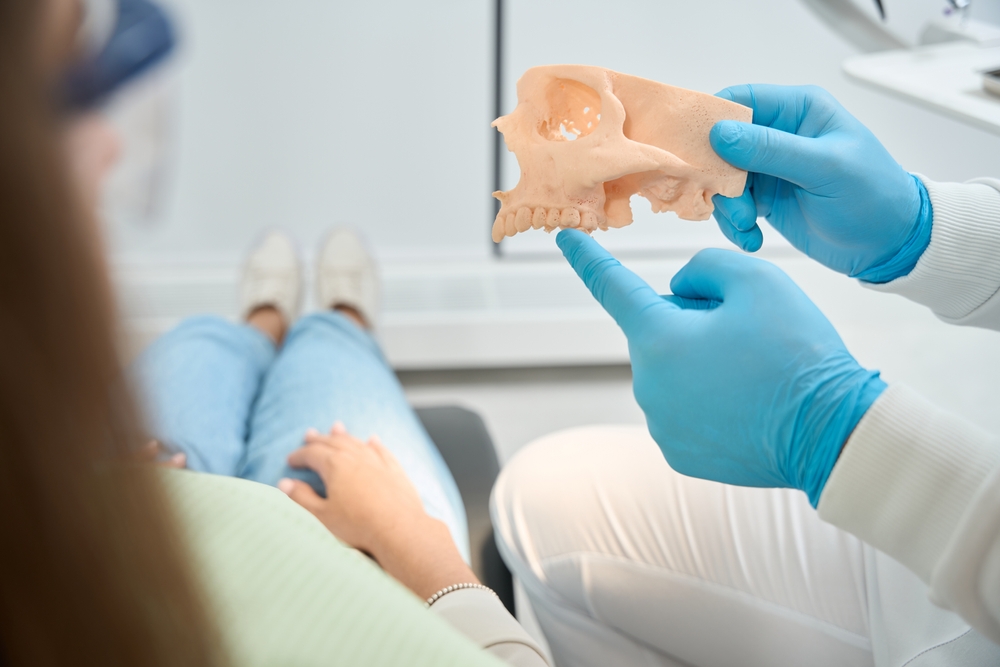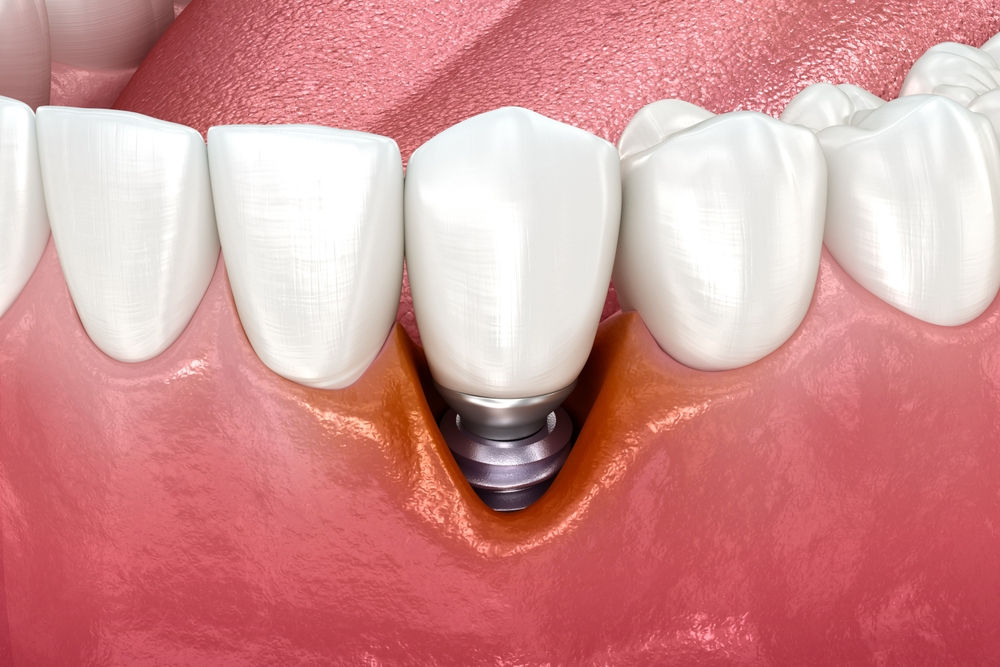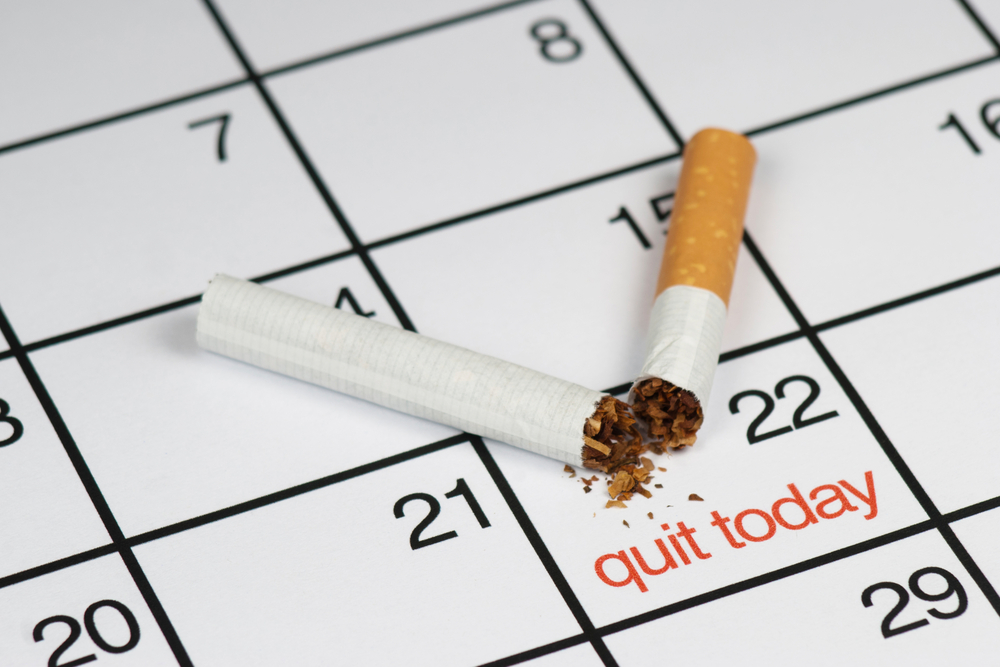Can I Get Dental Implants if I Smoke?
Dental implants are widely recognized as the best solution for tooth replacement. However, if you smoke, you may be wondering whether you are a good candidate for receiving dental implants now.
The answer is yes, you can get dental implants even if you smoke. However, it’s important to understand that smoking can negatively impact the success of your dental implant treatment. Smokers have a higher rate of implant failure compared to non-smokers. Smoking can slow down healing, increase the risk of infection, and make it more difficult for dental implants to integrate with the jawbone.
If you have concerns about smoking and dental implants, contact our Oakville dental office at 905-901-3824 for new patients or 905-257-6900 for current patients. Oakville implant dentist, Dr. Pawel Zajac and our team proudly serve patients in Oakville, Mississauga, Etobicoke, and Hamilton, Canada.

How Smoking Affects Your Oral Health
Smoking has a significant impact on oral health, affecting both natural teeth and dental implants. Here are some of the most serious consequences of smoking on your mouth:
- Gum Disease (Periodontitis): Smoking is a leading cause of gum disease, a bacterial infection that damages the gums and bone supporting your teeth. Since smoking weakens the immune system, it makes it harder for the body to fight infections, increasing the risk of severe gum disease and tooth loss.
- Persistent Bad Breath: Smoking contributes to chronic bad breath due to the buildup of bacteria and plaque in the mouth. The chemicals in tobacco also dry out the mouth, further worsening halitosis.
- Tooth Discoloration: The nicotine and tar in cigarettes cause yellow and brown stains on the teeth that are difficult to remove with regular brushing and even professional cleanings.
- Oral Cancer: Smoking is a major risk factor for oral cancer, which can affect the lips, tongue, cheeks, and throat. Oral cancer can be life-threatening if not detected and treated early.
- Delayed Healing: Smoking slows down the body’s ability to heal, which is particularly concerning for dental implant patients. The reduced blood flow to the gums and jawbone can cause complications during the healing process, increasing the risk of implant failure.
If you’re considering dental implants, quitting smoking can significantly improve your chances of successful implant placement. Our Oakville dental implant provider is here to help you explore your options.
How Does Smoking Affect Dental Implants?
Slower Recovery Time
The chemicals in cigarettes, particularly nicotine, restrict blood flow to the gums and jawbone. Since dental implants require a healthy blood supply to integrate with the bone properly, smoking can significantly slow down the healing process. A prolonged recovery period increases the risk of complications, such as infection and implant failure.
Higher Risk of Implant Failure
Smoking is directly linked to an increased rate of dental implant failure. The failure rate for smokers can be as high as 20 percent, compared to just one to five percent for non-smokers. This is because nicotine weakens the bone and interferes with osseointegration—the process in which the implant fuses with bone tissue in the jawbone.
Increased Risk of Infection
Nicotine suppresses the immune system, making it harder for your body to fight off infections. Smoking increases the risk of developing an infection at the implant site, which can lead to implant failure or require additional surgical intervention.
Higher Chances of Peri-Implantitis
Peri-implantitis is an inflammatory condition that affects the soft and hard tissues surrounding a dental implant. This infection can lead to bone loss and implant failure. Smoking increases the risk of developing peri-implantitis and exacerbates existing gum disease, further jeopardizing implant success.
Symptoms of Implant Failure
While dental implants have a high success rate, smokers are at greater risk of implant failure. Watch out for these warning signs:
- Red, swollen, or bleeding gums
- Persistent pain or discomfort
- Difficulty chewing
- Gum recession around the implant
- Swelling or pus at the implant site
- A loose implant or crown
If you notice any of these symptoms, contact our Oakville dental implant provider right away. Early intervention can help prevent further complications.
Tips for Quitting Smoking Before Dental Implant Surgery
If you smoke, quitting before and after dental implant surgery can greatly improve your chances of success. Here are some helpful strategies:
- Join a Support Group: Connecting with others who are quitting can provide motivation and encouragement.
- Use Nicotine Replacement Therapy (With Caution): While nicotine patches and gum can help reduce cravings, they can still affect blood flow. Consult with your dentist before using them.
- Seek Professional Help: Your healthcare provider can recommend medications or counseling programs to help you quit.
- Identify and Avoid Triggers: Stress, alcohol, and social situations where smoking is common can make quitting more challenging.
- Set a Quit Date: Choosing a specific date to quit gives you a clear goal and helps with mental preparation.
Frequently Asked Questions
Can I smoke before or after the implant procedure?
How long should I quit smoking before and after the implant procedure?
Can I use nicotine replacement therapy instead of quitting smoking?
What is the success rate of dental implants for smokers?
Find Out If Dental Implants Are Right for You
If you’re a smoker considering dental implants, it’s important to weigh the risks and take steps to improve your chances of success. Quitting smoking before and after implant surgery can make a significant difference in the outcome.
For more information, schedule a consultation at Zajac Dental in Oakville, ON. Our experienced team will assess your oral health and help determine the best tooth replacement solution for you. Call us today at 905-901-3824 for new patients or 905-257-6900 for current patients. We proudly serve Oakville, Mississauga, Etobicoke, and Hamilton, Canada.

